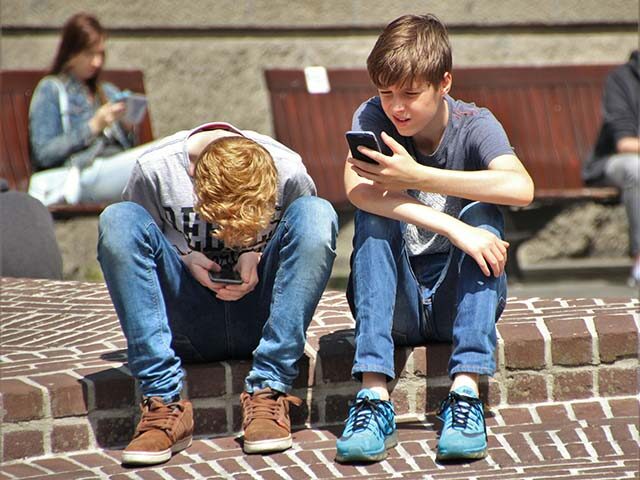Australia to Ban Teens from Tiktok, Instagram, X, Snapchat
 Pixabay
Pixabay
Australia is rushing to get a new law banning children under 16 from using most social media platforms through parliament.
On Thursday, Communications Minister Michelle Rowland listed some of the platforms that children would be banned from, including TikTok, Instagram, Reddit, X, and perhaps most controversially Snapchat, which is extremely popular with Australian youth.
The Snapchat ban was first reported by Australia’s News.com, which quoted Rowland last week saying Snapchat might evade the new age restrictions because it was arguably a messaging platform, not a social media service. WhatsApp has been exempted from the ban on similar grounds.
Some Australians who support the ban said it was important to block access to Snapchat, which they described as one of the worst platforms for negatively influencing young people.
“For many Australian families, Snapchat has had a devastating impact on their children. The idea of having social media age limits without those limits applying to Snapchat is outrageous,” Shadow Communications Minister David Coleman said after Rowland suggested Snapchat might be exempted.
“Not everyone on Snapchat is an online bully, but in my experience every online bully uses Snapchat. It’s just such a great tool to weaponize harm,” said Queensland Catholic Secondary Principals Association Director Dan McMahon.
McMahon said he was “gobsmacked” that Snapchat might be left off the ban list because several of his students have been killed by online bullying conducted through the platform. His gob is now presumably unsmacked, because Rowland said Snapchat will be blocked when the new system takes effect next year.
News.com suspected Australian teens will not take this news well because they are very fond of Snapchat and they might question the logic of banning it while permitting access to services like YouTube and Google, which are evading the restrictions because they are used in classrooms.
The ban also makes exceptions for video game platforms, which will come as a relief to children but many concerned adults point to video game platforms like Minecraft and Roblox as some of the most dangerous social media platforms of all. Canadian police recently warned that extremists like the Islamic State are heavily recruiting young people with the social media functions of online games.
Australia has been boasting of its “world-leading” plans to restrict social media for children since November, when a timetable for both legislation and implementation was announced. Some other national and local governments, including in the United States, have made efforts to restrict social media usage for children, but the cutoff age is usually much younger than Australia’s proposed 16.
Most other social media restriction schemes also include “grandfather” clauses that will allow children under the cutoff age to continue using their existing accounts when the ban goes into effect. This is not the case with Australia, which plans to simultaneously shut down all existing accounts for children on the affected social media platforms next year.
Rowland and her boss, Prime Minister Antony Albanese, admit that the logistics of implementing and enforcing the ban are still being worked out. Albanese remained adamant that the ban is necessary, and will be implemented on schedule next year.
“We know social media is doing social harm,” Albanese said in a statement on Thursday. “We want Australian children to have a childhood, and we want parents to know the Government is in their corner.”
“This is a landmark reform. We know some kids will find workarounds, but we’re sending a message to social media companies to clean up their act,” he added.
“If it was easy it would have been done around the world. But just because something is hard doesn’t mean that you shouldn’t try,” the prime minister said.
Rowland said one of the enforcement mechanisms will be fines of up to $49.5 million for “online safety breaches” from social media companies.
“The legislation places the onus on social media platforms, not parents or children, to ensure protections are in place. Ultimately, this is about supporting a safer and healthier online environment for young Australians,” Rowland said.
The bill introduced in the Australian parliament on Thursday provides for developing an age verification system that could use biometrics or government-issued identification cards. There is little serious opposition to the bill, although a few lawmakers have asked for more details about how the system will work, or expressed skepticism that determined young people can be effectively banned from social media.
The Australian Human Rights Commission lodged one of the sternest objections to the bill on Thursday, expressing “serious reservations” about the “potential for these laws to significantly interfere with the rights of children and young people.”
“Where rights are limited to protect children from online harms, any limitations must be lawful, necessary and proportionate. This means using the least restrictive option available to achieve the intended purpose,” the commission said.
The commission cited various international conventions on children’s rights that could be transgressed by the ban, warned that it could interfere with educational activities, and expressed concern that the age verification system could compromise the privacy rights of all Australians.
“Social media is integral to modern communication and socialization. Excluding young people from these platforms may isolate them from their peers and limit their ability to access much-needed information and support. This is particularly important for young people from marginalized, vulnerable or remote communities,” the commission said.
Source link

